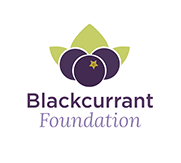Reducing Erectile Dysfunction
Blackcurrants have long been regarded as a super fruit, commonly renowned for their rich antioxidant content which has been proven time and again to help keep us healthy. According to new groundbreaking research, blackcurrants might even be beneficial for our health in ways previously unexplored: scientists in the US and UK have found that a diet rich in flavonoids, natural compounds found in fruit and vegetables, could dramatically reduce the risk of erectile dysfunction.
Erectile dysfunction affects 322m men globally and, as well as being distressing to the individual, it’s also an early indicator of poor vascular function, a precursor of cardiovascular disease. Research published earlier this year has revealed that men who look after themselves, take physical activity and enjoy a diet rich in flavonoids (naturally occurring compounds in fruit and vegetables), are less likely to suffer erectile dysfunction.
The study, led by Professor Aedin Cassidy (University of East Anglia), assessed flavonoid intake in ~ 25,000 men over a 10 year period. Of the six main commonly consumed flavonoids that were examined, three were found to be beneficial; anthocyanins, flavanones and flavones – and men who regularly consumed foods high in these flavonoids were 10 per cent less likely to suffer erectile dysfunction. Blackcurrants contain the highest level of anthocyanins compared to blueberries, red wine, apples and citrus fruits.
The study highlights that those who take some physical activity and have a high flavonoid intake have a 21% lower risk than those with a combined low intake and physical activity. It was also found that overall the beneficial effects of these higher levels of flavonoid intake equate to two to five hours of brisk walking.
“Professor Cassidy and her colleagues have produced research based on a phenomenally large group of participants over many years. This study highlights that there are simple and enjoyable dietary routes to reducing the risk of erectile dysfunction: eat soft fruit and drink the associated juices”. Professor Derek Stewart of the James Hutton Institute in Scotland
References
- Ghosh et al., (2006) Effects of anthocyanins and other phenolics of boysenberry and blackcurrant as inhibitors of oxidative stress and damage to cellular DNA in SH-SY5Y and HL-60 cells. Journal of the Science of Food and Agriculture. 86, 678-686.
- Lau et al. (2005) The beneficial effects of fruit polyphenols on brain aging. Neurobiology of Aging, 26(1), 128-132. Galli et al. (2006) Blueberry supplemented diet reverses age-related decline in hippocampal HSP70 neuroprotection. Neurobiology of Aging, (27), 344-350. de Rivera et al. (2005) The effects of antioxidants in the senescent auditory cortex. Neurobiology of Aging, (In Press), Rabin et al. (2005) Effects of age and diet on the heavy particle-induced disruption of operant responding produced by a ground-based model for exposure to cosmic. Brain Research, 1036, 122-129 Youdim and Joeseph (2001) A possible emerging role of phytochemicals in improving age-related neurological dysfunctions: a multiplicity of effects. Free Radical Biology and Medicine, 30, 583-594.
- Maria Rosana Ramirez et al. Effect of lyophilised Vaccinium berries on memory, anxiety and locomotion in adult rats Pharmacological Research, Volume 52, Issue 6, December 2005, Pages 457-462
- Ishige et al. (2001) Flavonoids protect neuronal cells from oxidative stress by three distinct mechanisms Free Radical Biology and Medicine, 30(4) , 433-446
- Schroeter et al. (2000) Phenolic antioxidants attenuate neuronal cell death following uptake of oxidized low-density lipoprotein. Free Radical Biology and Medicine. 29(12) 1222-1233
- Spencer et al. (2001) Epicatechin and its in vivo metabolite, 3«-O-methyl epicatechin, protect human fibroblasts from oxidative-stress-induced cell death involving caspase-3 activation Biochem. J. 354, 493-500
- Bagchi et al. (2000) Free radicals and grape seed proanthocyanidin extract: importance in human health and disease prevention. Toxicology, 148, (2-3), 187-197.
- Orr W.C. and Sohal R.S. (1994) Extension of life-span by overexpression of superoxide dismutase and catalase in Drosphila melanogaster. Science 263: 1128.
- Harman D. (1999) Free radical theory of ageing: applications. Asia Pacific Heart Journal 7: 169-177.
- Joseph J.A, Shukitt Hale B., Denisova N.A., Prior R. L., Cao G., Martin A., Taglialatela G., Bickford P. C. (1998) Long-term dietary strawberry, spinach, or vitamin E supplementation retards the onset of age-related neuronal signal-transduction and cognitive behavioral deficits. Journal of Neuroscience 18: 8047-8055.
- Joseph J.A. et al. (1999) 52nd Annual Scientific Meeting of the Gerontological Society of America in San Francisco.
- Jones E. Hughes R.E. (1982) Quercetin, flavonoids and the life-span of mice. Experimental Gerontology 17: 213-217.
- Bormann J., Demisch L., Goertelmeyer R, Koch R., Schatton W. (1991; Merz and Co GMBH and Co) Use of blackcurrant juice to promote monoamine oxidase inhibition –for increasing cerebral performance, treating and preventing Parkinson’s disease, etc. US 91755814.
YOU MAY ALSO WANT TO READ
The Natural Brain Boost
Ground-breaking research reveals that acute supplementation with blackcurrant extract can help to increase human cognitive function and performance.
read moreDigestion & Fighting Cancer
Research reveals that blackcurrants can help to promote healthy bacteria in the gut as well as having an ‘anti-tumour’ effect on some cancers.
read moreCardiovascular Health
Studies suggest that the antioxidant ability of blackcurrants can not only protect the body’s nerve cells but help to regenerate the body’s own defence systems.
read more
